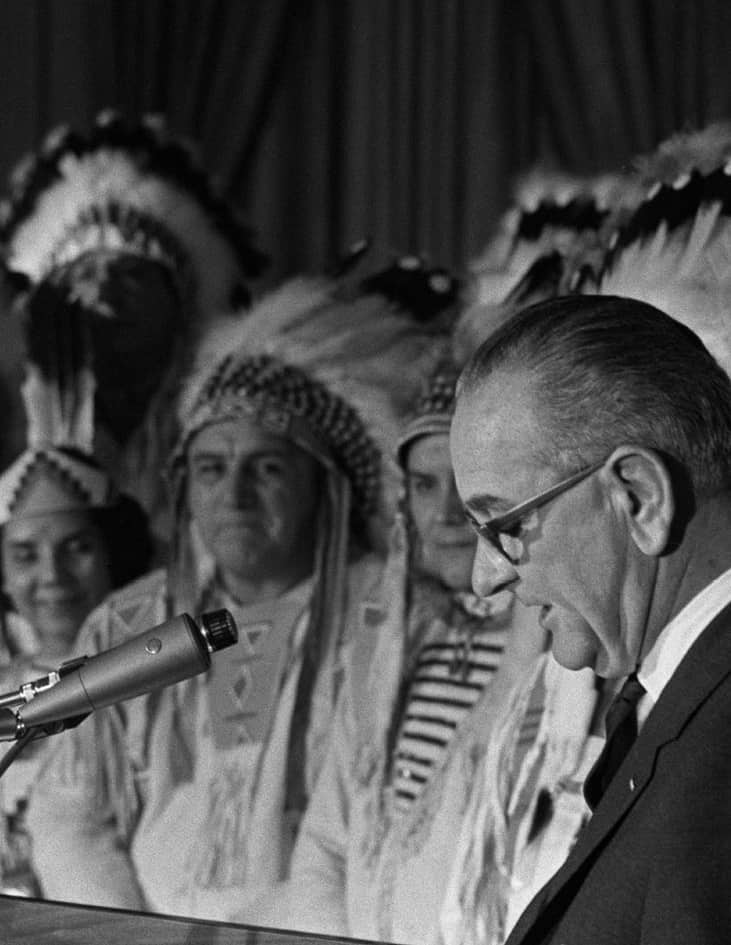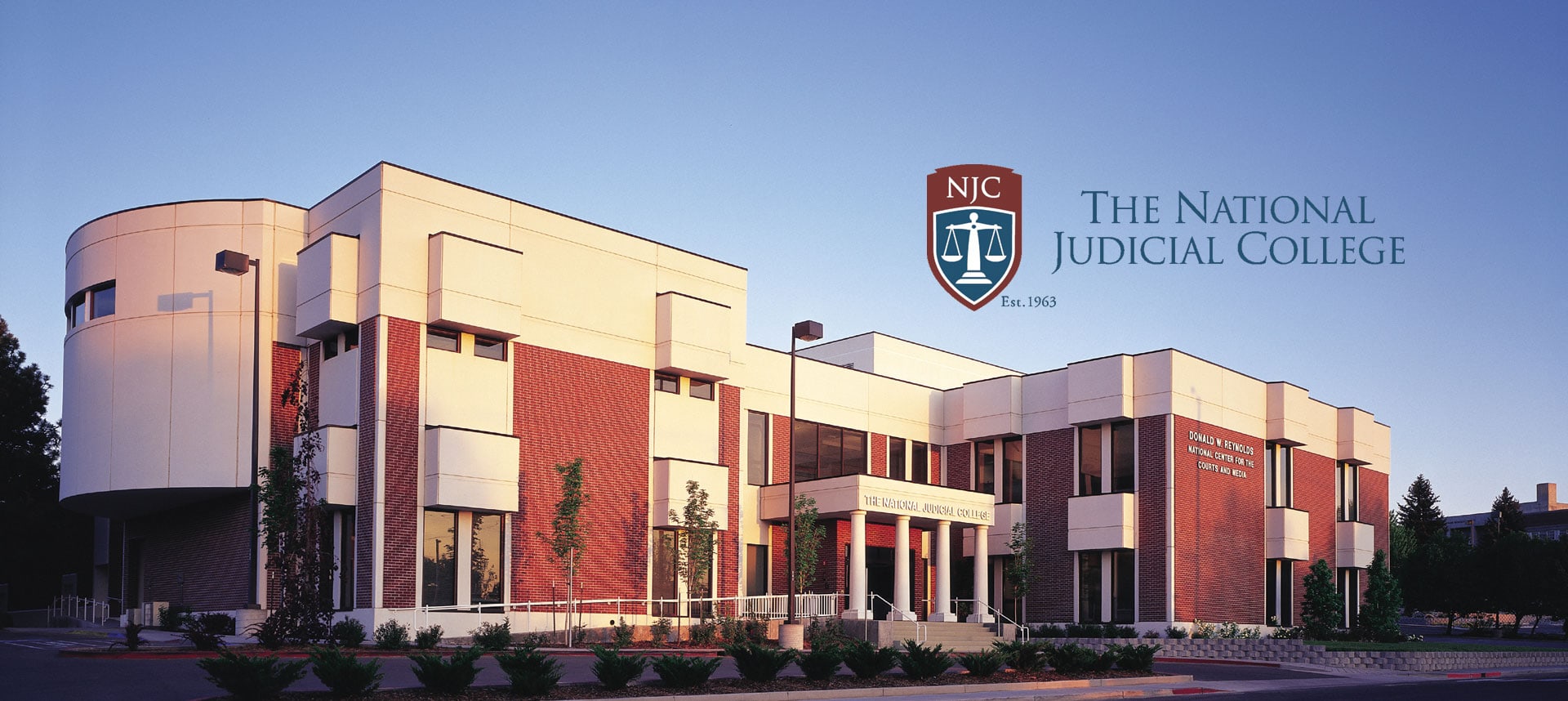By Hon. Tammi M. Lambert

The Indian Civil Rights Act of 1968 does not guarantee a public defender to defendants facing criminal charges in tribal courts. Many tribal governments lack the funding for public defenders. You should seek funding for public defenders, but in their absence, here are five actions you, as a judge, can take to ensure justice.
Signed by President Lyndon Johnson, the Indian Civil Rights Act of 1968 was designed to ensure Native Americans equal rights under the law.
- Quiz defendants. As judges, we have probably uttered the defendant’s rights at arraignments so often it is like a mantra. The defendants have probably heard the legal terms before from television or from life experiences, but now they are on trial and they may not understand how the terms apply to them personally. To be sure defendants understand, frequently ask them to explain the meaning of what they’ve just heard or what they think is happening. Keep trying until you’re sure they understand.
- Take shame out of the equation. Often Native people are ashamed of being in the process, being in the courtroom. They just want to “get it over with.” Tribal communities are often close-knit communities that can be torn apart by the Western-based adversarial systems. Many times a defendant will enter a no-contest plea because they just do not want to fight for themselves or with law enforcement officers or with the alleged victims. It is important to let defendants know there is a reason for the process, and we are committed that it be fair and just to all parties.
- Listen closely to allocutions. An allocution upon a no-contest plea ensures that the defendant is willing to take responsibility for their actions. This promotes a more successful probation and rehabilitation. Prosecutors or law enforcement officials prosecuting the case sometimes become incensed when the court rejects a no-contest plea allocution because the allocution does not match the elements of the crime charged. However, accepting a plea of no-contest or guilty when the defendant continues to insist they “didn’t do it” is a miscarriage of justice. If the allocution does not match the crime charged, then the case must move to trial.
- Consider limiting or eliminating the no-contest option. Tribal courts should consider whether it is preferable to remove the no-contest plea option except in certain circumstances where there is a likelihood that there is another case that could be impacted.
- Consider lay advocates in lieu of formal legal counsel. Courts can develop lay advocacy classes and certifications that require compliance with the Rules of Professional Conduct. This is useful because in some jurisdictions the state criminal defense bar does not feel competent enough with tribal laws to practice in tribal courts. Having a local bar of lay advocates mitigates some of the harm of lacking a public defender. It has been my practice to allow any advocate — say, a friend or family member — to sit at the table with a defendant even if just for support. The defendant is still deemed to be representing themselves pro se, but having that support often helps them feel the process was fair. They may be more comfortable asking questions of the advocate, which can then be posed to the court.
Often prosecution or law enforcement officials feel that a judge is being too careful of the defendant’s rights and may be biased toward the defendant. However, the Indian Civil Rights Act is clear that defendants have a right to a fair process, and it is the court’s responsibility to ensure that those rights are honored.
At the end of the day, we go home to our families. The criminal defendant may not, and they and their families have the most at stake. Even if we are extremely busy, it is appropriate to take the time to ensure that the self-represented defendant and their families understand the process, their rights and consequences.
Learn the “business side” of managing your tribal court
Court management is the foundation of an efficient and effective tribal justice system that truly and fairly serves your tribal community. Advanced Tribal Court Management will teach you to discuss external and internal jurisdictional cooperation; recognize the fundamental goals of access to justice and the establishment of stare decisis in the tribal court; design internal controls and develop policy for enhanced court operation; assess ethical issues; and evaluate the impact of “tradition” and “custom” on court operations.
Offered August 13 ̶ 16, 2018, in Reno, NV
Click here for more information and to register.


The Hon. Mary-Margaret Anderson (Ret.), a retired administrative law judge with the California Office of Ad...

Happy October, Gaveliers faithful. Are you loving this or what? No one believed a team made up of judges...


Hon. Diane J. Humetewa, the first Native American woman and the first enrolled tribal member to serve as a ...

Retired Massachusetts Chief Justice Margaret H. Marshall has been selected as the 2024 winner of the presti...